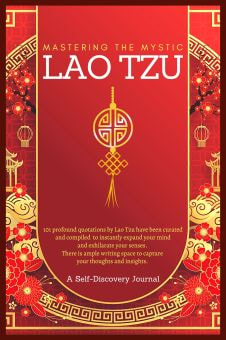| The story of Lord Rama and King Bali is a fascinating episode from the epic Ramayana, offering valuable lessons on humility, justice, and the importance of keeping one's promises. This tale provides insights into the complexities of morality and righteousness. Lord Rama and King BaliKing Bali, also known as Vali, was the mighty ruler of Kishkindha and the elder brother of Sugriva. He possessed immense strength and was renowned for his bravery and prowess in battle. However, Bali's relationship with his brother Sugriva was strained due to a misunderstanding involving | |
Sugriva's wife, Ruma, whom Bali forcibly took after believing that Sugriva had conspired against him.
Sugriva, seeking help to reclaim his kingdom and his wife, approached Lord Rama and his brother Lakshmana, who were in exile and searching for Sita, Rama's wife who had been abducted by the demon king Ravana.
Recognizing the mutual benefit of forming an alliance, Sugriva and Lord Rama made a pact. Sugriva promised to help Lord Rama find Sita, while Rama vowed to help Sugriva regain his kingdom and his wife from Bali.
Sugriva, seeking help to reclaim his kingdom and his wife, approached Lord Rama and his brother Lakshmana, who were in exile and searching for Sita, Rama's wife who had been abducted by the demon king Ravana.
Recognizing the mutual benefit of forming an alliance, Sugriva and Lord Rama made a pact. Sugriva promised to help Lord Rama find Sita, while Rama vowed to help Sugriva regain his kingdom and his wife from Bali.
The duel between Sugriva and Kind Bali
In order to fulfill his promise, Lord Rama devised a plan to challenge King Bali to a duel. As per the plan, Sugriva would challenge Bali to a fight, and Lord Rama, hiding behind the trees, would shoot an arrow to kill Bali.
However, Bali and Sugriva looked very similar in appearance, which posed a challenge for Rama to identify the right target. To overcome this, Sugriva wore a garland of flowers, making it easy for Rama to recognize him.
As the duel between the brothers ensued, Lord Rama, concealed behind the trees, took aim and shot a single arrow that pierced Bali's chest, mortally wounding him. As he lay dying, Bali questioned Lord Rama's actions, asking why he had killed him without giving him a chance to defend himself.
However, Bali and Sugriva looked very similar in appearance, which posed a challenge for Rama to identify the right target. To overcome this, Sugriva wore a garland of flowers, making it easy for Rama to recognize him.
As the duel between the brothers ensued, Lord Rama, concealed behind the trees, took aim and shot a single arrow that pierced Bali's chest, mortally wounding him. As he lay dying, Bali questioned Lord Rama's actions, asking why he had killed him without giving him a chance to defend himself.
Lord Rama's actions upheld Dharma (Righteousness)
Lord Rama explained that his intervention was justified as Bali had committed an injustice by taking Sugriva's wife and kingdom. He further added that as the protector of dharma, or righteousness, it was his duty to rectify the situation and ensure that justice was served.
Bali, realizing the truth in Rama's words, humbly accepted his fate and sought forgiveness for his actions. With his last breath, Bali declared Sugriva as his successor and entrusted the kingdom of Kishkindha to him.
The story of Lord Rama and King Bali highlights the intricacies of morality and the need to uphold dharma, even when it involves making difficult choices. It teaches us the importance of humility, the value of keeping one's promises, and the significance of accepting responsibility for our actions.
Bali, realizing the truth in Rama's words, humbly accepted his fate and sought forgiveness for his actions. With his last breath, Bali declared Sugriva as his successor and entrusted the kingdom of Kishkindha to him.
The story of Lord Rama and King Bali highlights the intricacies of morality and the need to uphold dharma, even when it involves making difficult choices. It teaches us the importance of humility, the value of keeping one's promises, and the significance of accepting responsibility for our actions.























